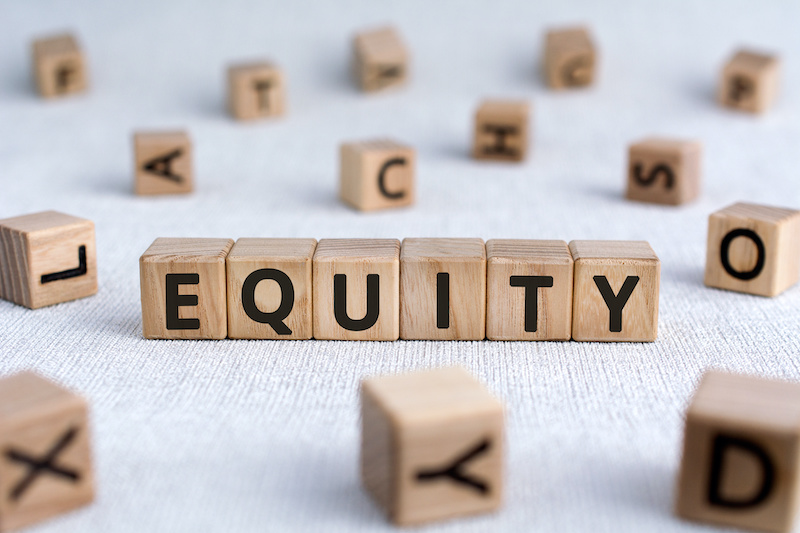In the world of property and homeownership, equity in real estate is a term you’ll often hear discussed. Yet, for many, its true significance remains a mystery. Understanding equity can make the difference between leveraging your property for maximum financial benefit and missing out on opportunities.
In this guide, we’ll demystify equity in real estate, diving deep into its definition, calculation, and how to use it to your advantage.
What is Equity in Real Estate?
Equity, in the simplest terms, represents the value of ownership in a property. Imagine owning a house without any outstanding mortgage; the total value of that house represents your equity. However, most homeowners have a mortgage, so their equity is the property’s value minus any outstanding loan amount.
How is Equity Calculated?
The formula for calculating equity is straightforward:
Equity = Property’s Market Value – Outstanding Mortgage Balance
For example, in a scenario where we have a property with a value of $300,000 and an outstanding mortgage balance of $200,000:
-
Property Value: $300,000
-
Outstanding Mortgage: $200,000
-
Equity: $300,000 – $200,000 = $100,000
In this scenario, the homeowner has $100,000 worth of equity in the property.
[ Thinking about investing in real estate? Register to attend a FREE online real estate class and learn how to get started investing in real estate. ]

What Factors Effect Equity?
It’s essential to remember that the property’s market value can fluctuate based on several factors:
Local Real Estate Market Trends
The local housing market plays a significant role in determining a property’s value. A neighborhood undergoing gentrification, with new developments and increased amenities, can boost property values, thus increasing equity. Conversely, a downturn in the local market or adverse developments can decrease values.
Property Condition
Well-maintained homes, or those which have undergone significant improvements and renovations, usually command a higher market value. Regular maintenance and updates not only make the home more desirable but also contribute to equity accumulation.
Economic Factors
Broad economic factors, such as the overall health of the economy, interest rates, and employment levels, influence buyer demand. A booming economy often correlates with rising house prices, while recessions might see a dip.
Supply and Demand in the Housing Market
Like any market, the housing market is governed by supply and demand. High demand coupled with low supply can push property values up, leading to increased equity. In contrast, if there’s an oversupply of homes with few buyers, prices might stagnate or drop.
Thus, equity isn’t a static figure; it can grow or decrease depending on the circumstances.
[ Learning how to invest in real estate doesn’t have to be hard! Our online real estate investing class has everything you need to shorten the learning curve and start investing in real estate in your area. ]
Importance of Equity in Real Estate
Equity plays a pivotal role in the financial journey of homeowners and real estate investors. Here’s why it’s crucial:
-
Wealth Accumulation: As equity increases, so does your net worth. The more a property appreciates, and the more of the mortgage you pay off, the greater your wealth.
-
Increased Borrowing Power: Lenders view homeowners with substantial equity as less risky. This can lead to better terms when refinancing or securing other types of loans.
-
Potential for Profit: When selling, homeowners with significant equity stand to make a substantial profit, especially if the market is strong.
According to a report from CoreLogic, in 2020, U.S. homeowners with mortgages (which account for roughly 63% of all properties) saw a 10.8% increase in their equity, averaging about $17,000 per homeowner.
Ways to Increase Property Equity
Boosting your equity isn’t just about waiting for the market to rise. Here are some proactive steps:
-
Making Larger Mortgage Payments: Even adding a small amount to your monthly payment can decrease your loan balance faster, building equity.
-
Renovate or Update the Property: Improvements can significantly increase a home’s value. Think kitchen remodels, bathroom upgrades, or even landscaping.
-
Wait for Market Appreciation: In areas with rising property values, simply holding onto a property can result in increased equity.
-
Avoid Taking on Additional Debt: Refrain from taking out second mortgages or home equity lines of credit unless it’s strategically beneficial.
Using Equity to Your Advantage
Once you’ve built up equity, there are several ways to leverage it:
-
Refinancing: With sufficient equity, homeowners can refinance their mortgage to secure a better interest rate.
-
Home Equity Loans: These are essentially second mortgages, allowing homeowners to borrow against their equity.
-
Invest in More Property: For those inclined towards real estate investment, equity can serve as a launchpad for purchasing additional properties.
While using equity can be advantageous, it’s vital to make informed decisions. Borrowing against equity means that if the housing market declines or if you can’t meet the repayment terms, you risk losing more, potentially even your home.
Summary
Equity in real estate isn’t just a financial term; it’s a tool, an asset, and for many, a testament to years of hard work and smart decision-making. Understanding, building, and strategically using equity can be a game-changer in one’s financial journey. As the property market continues to evolve, so too will the opportunities surrounding equity. Equip yourself with knowledge, and you’ll be in a position to capitalize on them.
Ready to start taking advantage of the current opportunities in the real estate market?
Click the banner below to take a 90-minute online training class and get started learning how to invest in today’s real estate market!


